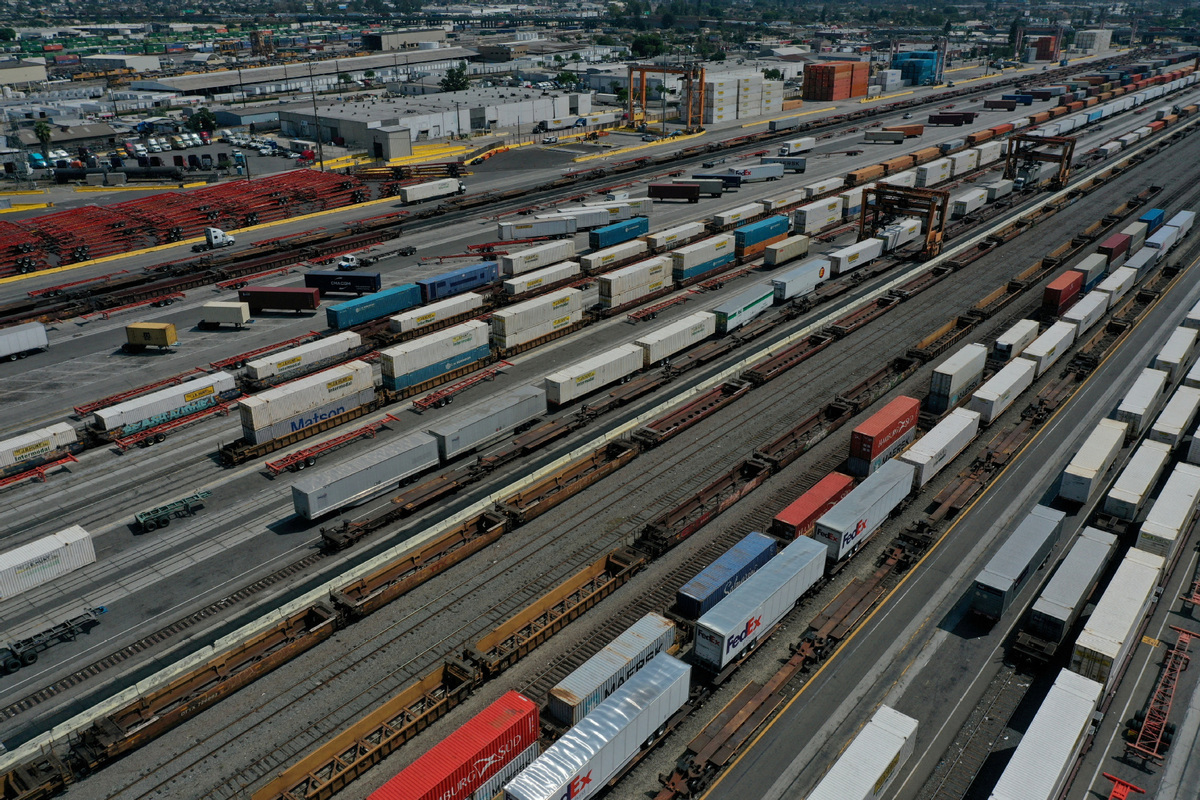
An aerial view of shipping containers and freight railway trains at the BNSF Los Angeles Intermodal Facility rail yard in Los Angeles, California, US, Sept 15, 2022. [Photo: Agencies]
On Nov 29, US President Joe Biden again urged Congress to quickly pass legislation to prevent the largest strike by freight rail workers in the United States over the past 30 years. In a statement, Biden warned that a rail shutdown would devastate the nation's economy and that without freight rail, many industries in the country would shut down.
Biden's statement came after the nation's largest railroad union rejected a tentative contract deal that would have improved worker conditions.
If the union and the railroad companies cannot reach an agreement by Dec 8, American railroad workers will go on strike starting from Friday. Bargaining is down to the wire now.
The strike was triggered by talks between rail unions and management that began in January 2020. Twelve Amtrak unions representing 120,000 railroad workers demanded a new labor agreement to improve working conditions.
The negotiations lasted nearly two years and were mediated by the Biden administration when 10 unions agreed to a new deal, but two still refused. On Sept 15, Biden stepped in and invited union leaders to the White House, where a tentative deal was reached.
But the tentative deal, which includes a 24 percent pay increase and a $1,000 annual subsidy for the five years from 2020 to 2024, which would raise the average wage of railroad workers to $110,000 by 2024, does not address the concerns about paid sick leave.
In a speech after the tentative agreement, Biden called it "a major victory for the United States." But the tentative deal has since been rejected by four unions. Since then, Amtrak, the union and the government have been locked in a new round of haggling.
This time, all three parties have lost their patience to some extent, and only a last resort is left to stop the strike — legislation by Congress to stop it. Congressional leaders from both parties, who had been at each other's throats until recently during the midterm elections, quickly agreed on how to deal with the railroad strike.
Biden has previously said he is the most pro-union president in history. The Republicans don't want to help Biden and the Democrats, but they don't want to mess up the economy either.
The strike could cost the US economy more than $2 billion a day. Other industries are less optimistic than Amtrak. A rail shutdown would fuel inflation and cost 700,000 jobs in a range of industries, potentially tipping the economy into recession.
Some business groups have even warned that it may be too late for Congress to intervene, and that rail operators could start cutting back on freight as early as later this week. Even if congressional legislation does prevent the strike by railway workers, it would not prevent strikes in other industries at a time of high inflation.


